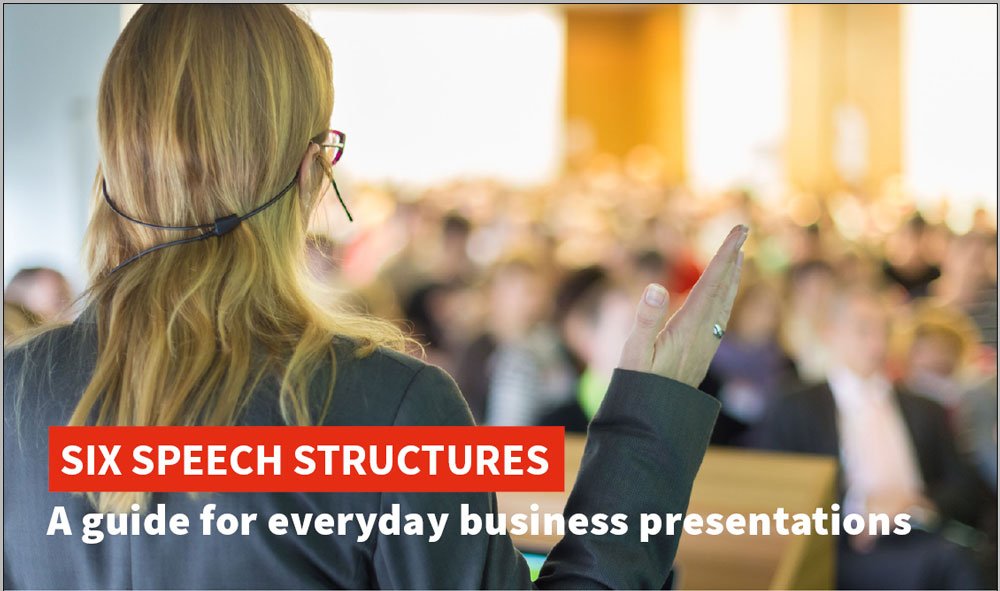Fixed with Gold – 3 More Painful Lessons That Help the Presenter Grow


In the first post in the series, I bared my soul about some of the howlers I made as a speaker, and pointed to the lessons that we can all learn from them that make us stronger and more resilient in the future, however painful the past might have been. The point being that our learning is sometimes most powerful when we have fallen, sometimes literally as Geoff demonstrates so beautifully below.
In this post I share some of my friends and colleagues’ experience for the same purpose. There is no speaker alive that hasn’t made a fool of themselves, fallen off the stage, lost the audience or blown it in any number of ways. And in every tragedy, just as in most triumphs, there’s a real lesson to be learned if we can get over our embarrassment.
1) You begin to believe your own publicity
Harvey had just done a 1-hour slot for a high-end city firm in London, as the inspirational speaker at the centre of a one-day internal conference. He’d done a great job in his gentle, anecdotal way and he’d really made the audience think.
He’d finished on time, and the great doors of the hall opened and people streamed out for coffee, and Harvey joined them. A sign of the impact he’d made was the queue of people wanting to talk to him, thank him or connect for future events. The last person in the queue, a young woman, visibly inspired by what he’d said, shook him by the hand and kissed him on the cheek and said,
‘Thank you Harvey. That speech has changed my life…’
Harvey started basking in the admiration of the woman in front of him, and tried to downplay the ‘genius’ label that the lady wanted to hang around his neck. She was so effusive that she had pushed Harvey back against the tables where the coffee urns stood. As the woman was reaching a crescendo of complimenting him, her attention was suddenly draw to his groin.
‘Harvey’, she said in a note of horror, ‘Have you wet yourself?’
At that instant, Harvey looked down to where she was looking, and was struck by a scalding, searing pain, and the sight of brown liquid, steaming and streaming from his crotch.
He hadn’t wet himself, he had been backed against the tap handle of one of those urns, and it had served him coffee in the most inappropriate and least enjoyable way. Hot coffee was streaming and steaming out of his best suit trousers.
Harvey let out a scream of agony that drew the attention of everyone in the room. 500 people were watching, horrified and fascinated, as their star turn crashed and burned in a way that no one could ever have imagined possible. The woman, now realising what had happened, was dabbing at the Harvey’s trousers with a wedge of napkins, and Harvey was desperately trying to remove his trousers to end the pain.
Harvey tells this story about himself to remind himself and every would-be ‘guru’ about the dangers of beginning to believe the kind things that people say about you when you’ve done a good job. Hubris, by any other name.
The lesson
Don’t get ahead of yourself. The truly charismatic speaker understands that courtesy and social skill are built on a foundation of humility. Harvey is a very grounded man, but on that day, with a roaring triumph behind him, and a legion of admirers in front of him, he had started to enjoy himself a little too much, and the universe, as it sometimes does, reminded him of his feet of clay.
2) Your ‘Big Idea’ sinks like a stone
I read a lot of posts and articles by speakers who talk about their ‘keynote’ speeches. They talk, blithely, about their three or four well-rehearsed and tried and tested speeches that they repeat, time after time to adoring audiences.
I agree that the core of a speech needs to be well practised, with the major points emphasised and the ‘big idea’ apparent. But I do worry about the actual effect that these ‘cut and paste’ speeches have on the audiences that are there. I don’t think that any audience is, ever, exactly the same audience as the one before. Even if they are the same audience, some things will have changed since you last saw them, even if it was just before lunch.
Assumptions kill speeches and can hurt the careless speaker. If we make assumptions about the people, their lifestyle, language, sensitivities, complexity, beliefs and the approach that will work for them, before we’ve checked that those assumptions are right, then there’s a danger that we’ll miss them. Like this:
I watched Harry L, an American marketing guru, speaking at a launch of a global business’s marketing strategy in 1992, just after the fall of the Berlin Wall. The audience was gathered there to hear a brilliant, knowledgeable speaker help them sell this company’s products into the vast markets opening up in the former ‘Iron Curtain’ countries of Central and Eastern Europe.
The audience was made up of young, well-educated professional marketeers working for the Company or for their affiliate businesses in each of 20 or so countries recently liberated from Soviet rule. Harry was greeted warmly by the crowd and his speech was going down well. He warmed them up with his interesting and challenging views on marketing, brand building and selling into new markets like theirs. As he got to the point (to help them sell millions of dollars’ worth of goods into their home countries), he unveiled his main message.
‘Our goal is to be first choice for white goods in every kitchen in central and eastern Europe… The first in every kitchen.’
He used this as his Big Idea, the central theme around which he had built his speech. He was expecting a standing ovation, or at least nods and smiles. He got nothing but a confused silence. He noticed that. So he said it again. Once again he got no response. He asked the obvious question,
‘Do you understand the point?’
A long silence followed. The speaker’s frustration with the unresponsive audience was obvious, and the energy in the room changed just a little as they became uncomfortable with his frustration, and their own confusion. There was some problem with the concept he had introduced. They knew it but didn’t want to say; he knew it but didn’t understand. After about 30 seconds, a young woman in row 2, put up her hand, and receiving a nod from Harry beached up on stage, she spoke.
‘Mr L, I’m wondering, have you ever been in a Polish kitchen?
‘No, I haven’t. Why? A kitchen’s a kitchen isn’t it?’ replied Harry.
‘No’, replied the woman. ‘I live with my husband and my parents in a 2-bedroom apartment in Warsaw. We have no room for a dishwasher, refrigerator or anything in our kitchen, just a table and four chairs…’
Harry thought about this for a moment and said,
‘But that doesn’t mean that my point is invalid, does it?’
The woman, responded, politely,
‘It does for Poland.’
‘But surely not everyone in Poland has their whole family living in a two-roomed flat…’
‘That is true Mr L, my mother is a professor at the University and my father is a cardiac surgeon. We are very lucky. Many people living in Poland have much less than we have.’
The 150 people in the hall, from Croatia, Hungary, Belarus, Lithuania and the other 20 countries, nodded and applauded. They weren’t angry, they just realised that Harry didn’t know much about Central and Eastern European homes, and that lack of knowledge meant that his theme ‘First in every kitchen…’ didn’t mean much here.
They were probably also thinking that if they were to spread this message back into their own countries, they would have to make some pretty substantial changes to the message because ‘First in every kitchen…’ wouldn’t work in their countries either.
Harry had lost the crowd and he didn’t get them back because his Big Idea, while perfect in the US and most of western Europe, was a non-starter east of Berlin. Harry had made an assumption that ‘over there’ was just like where he lived, and it almost never is. Harry had ruined his speech and painted himself as the kind of American who thinks that everywhere in the world is just like Des Moines in Iowa.
The lesson
If you’re building your speech around a central metaphor, make sure that that metaphor works for the audience that you’re going to meet. Harry could easily have checked this ‘Fit’ by running the idea past a few people who knew those places and those markets better than he did. If he’d done that in this case, he’d have found out that he needed to change the Big Idea to match the audience, or keep the Big Idea and change the way that he introduced it to those people who didn’t see kitchens in the way that he did.
3) You actually fell flat on your arse
Geoff was a client of mine. He was a gentle, kind, thoughtful man with no visible ego, and he’d been asked to make a speech to some of his professional peers, representing his FTSE 100 employer at a first rank university in the UK. It was a big speech, and Geoff prepared well. I helped him a little bit, and agreed to go along with him for the big event as a bit of moral support. We arrived at the gilded hall and hundreds of his peers were already there, Geoff was first on stage and he was nervous.
His time came and the Dean of the Business School introduced him and, after respectful applause and a slightly underplayed opening to his address, he made a fantastic speech. As the crowd sat to applaud him and the Dean rose to thank him, Geoff went over to his seat at the back of the stage and sat down. In sitting, he shuffled his chair into the backdrop curtain, with a modest smile, a wave of the hand to thank the audience for its kindness, and in a warm glow, disappeared from sight with a resounding thud bringing the red velour curtains down on top of him. He had actually fallen off the stage. Disappeared from view.
There was an gasp of horror from the audience, as we tried to work out what had happened. Where had Geoff gone? There was 2 seconds of complete, breathless silence before our friend appeared like a jumping jack from behind the dais. He struggled to free himself from the heavy curtains like a drowning man coming up for air. His eyes were wide with shock, his glasses askew, his hair all messed up and I had an aching wish that he would just pass out and save himself from the horror of that moment. But just as sympathy was about to overflow into embarrassment for him and mortification for the rest of us, Geoff did a simple and amazing thing. He smiled.
‘Thank God’ we all thought, ‘he’s smiling and we have no need to be hurt or embarrassed for him. Oh raise our hearts to heaven and love the world for ever…’ We breathed once more and began to smile along with him. Then Geoff grinned and we did too. Geoff chuckled, laughed and shook his head at the madness of it all, and we did too. The standing ovation lasted for all of 60 seconds with cheers, whistles, slaps on the back, and thunderous ‘hurrahs’. Geoff had fallen off the bloody stage and we loved him even more.
How can that be? Because we thought he’d die of shame and he didn’t.
The lesson
99.9% of the audience want you to do really well and will forgive you pretty much anything unless you embarrass them. So when you make a mistake, don’t apologise, carry on and smile at your humanity and allow the audience to smile too. They don’t hate you, they’re not laughing at you, they are mortified for you. As Bob Hope, the great comedian of the last century said so memorably,
An audience will forgive you anything so long as you don’t embarrass them
If you want to know more about writing and delivering the kind of speeches and presentations that will help you stand out from the crowd, why not sign up to our FREE newsletter? In the next post I’ll share the last four toe curling examples of falling flat on your face from the world of politics.
If you liked this, you might also like
The first in the series: Fixed with Gold – the Painful Lessons That Help the Presenter Grow
This is What Every Nervous Speaker Needs to Be Told
How can we stop comparing ourselves to others?: Why Comparisons are Bad But Can Be Made Good
Presentation is a High Performance Sport – There are No Miracles























